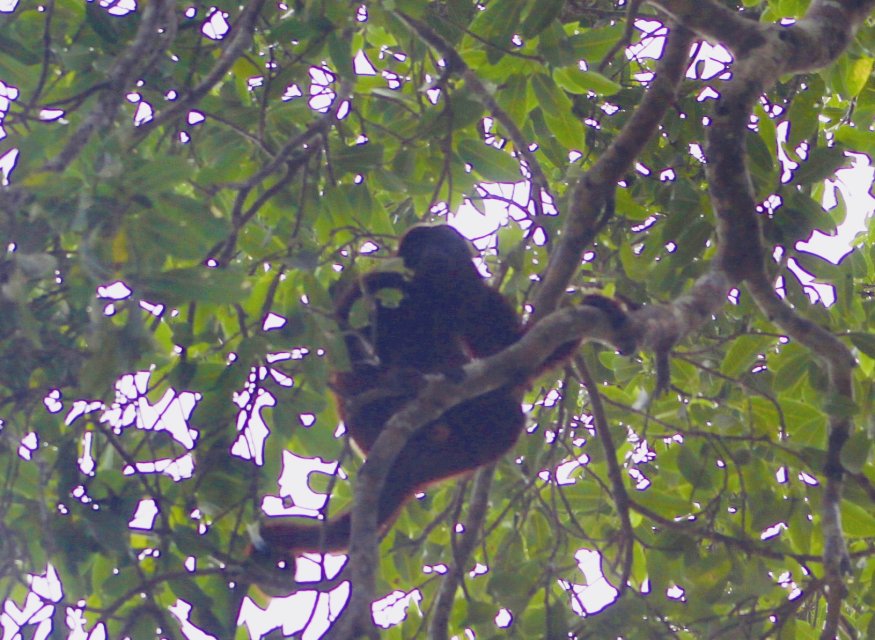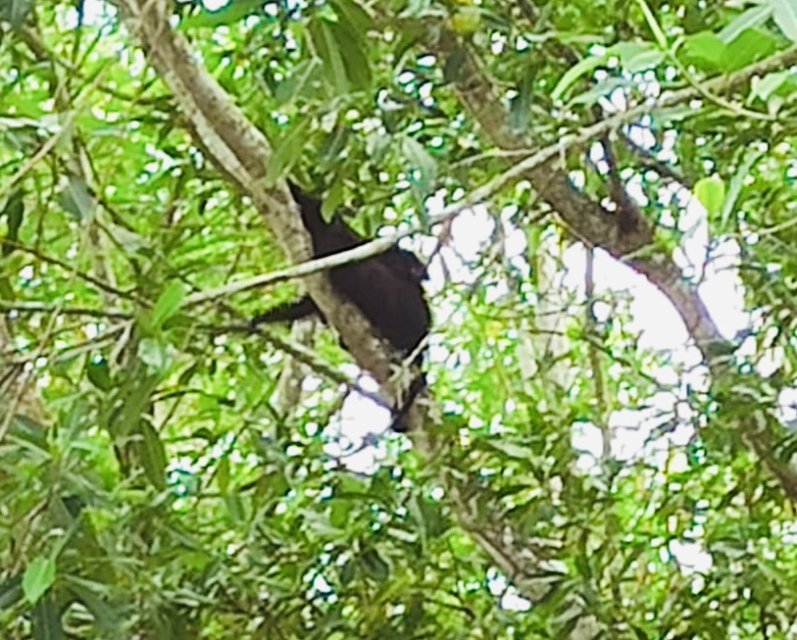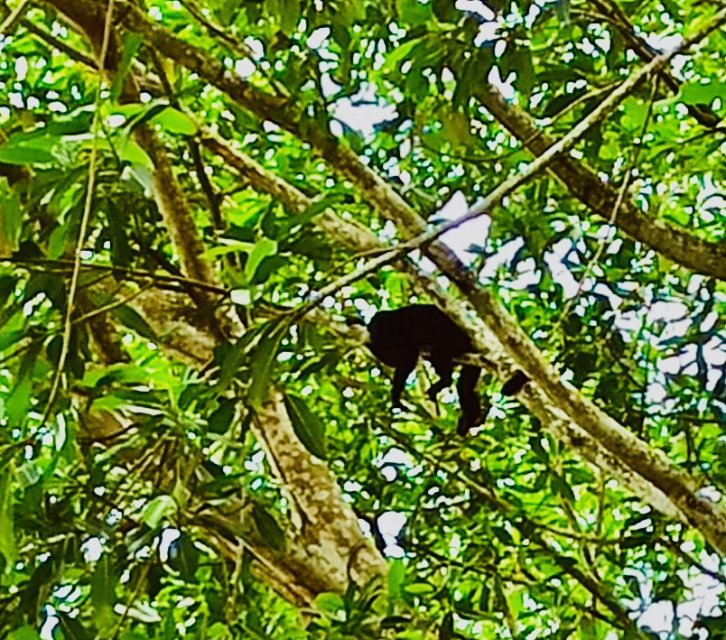The GPS said it would take about 2 hours to reach the Rio Canita from the dock in Panama City where the ferry dropped me off, so we set out Saturday morning, and about 11:30 am we reached a bridge that looked like a likely spot to toss our nets.

Just as we started to figure a pathway down, a car pulled up, and the driver said (In Spainish), “ I wouldn’t go down there, there’s a nest of Africanized bees living right under the bridge that have been regularly attacking fishermen.”
When Danny explained we were looking to collect small fish for an aquarium, he said just follows the dirt road 3 kilometers to my finca, it borders the Rio Bayano, and you are welcome to spend time there.
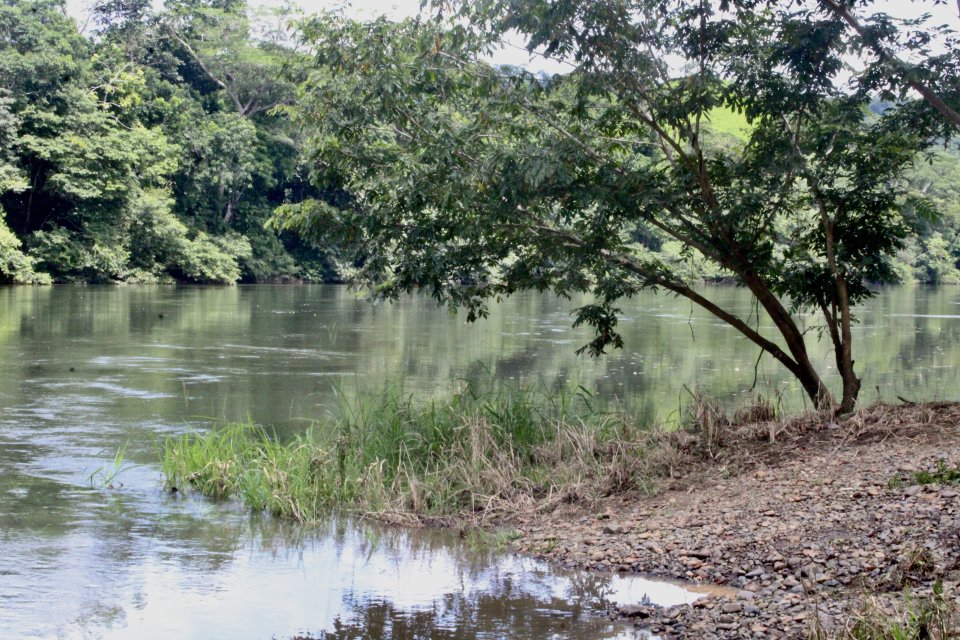
The river was wide and deep there, so we gingerly started casting from near near shore.
In the shallows I could see lots of mollies (Poecilia gilli), and in the forest holler monkeys warned it was their territory.
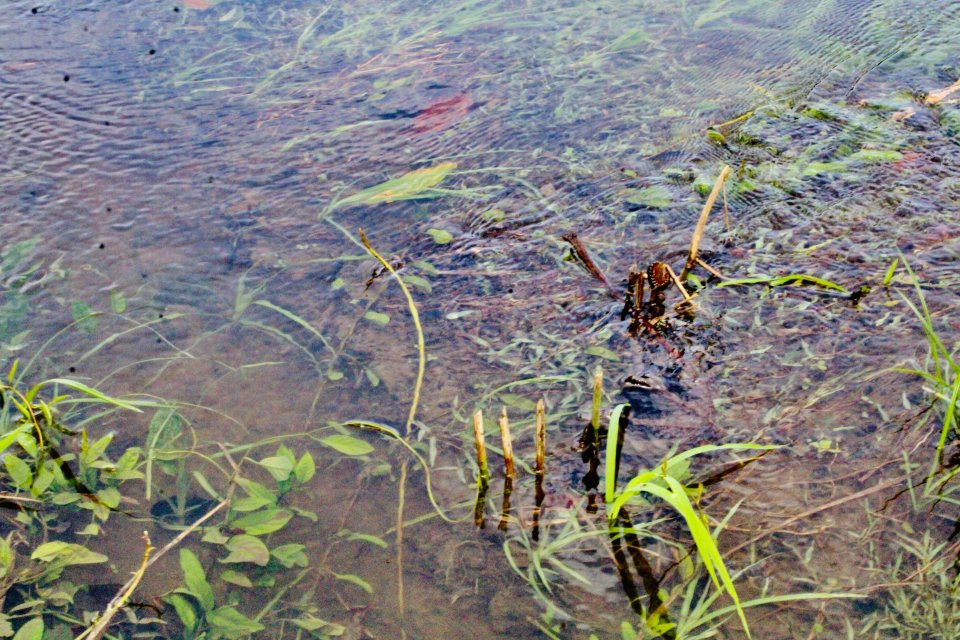
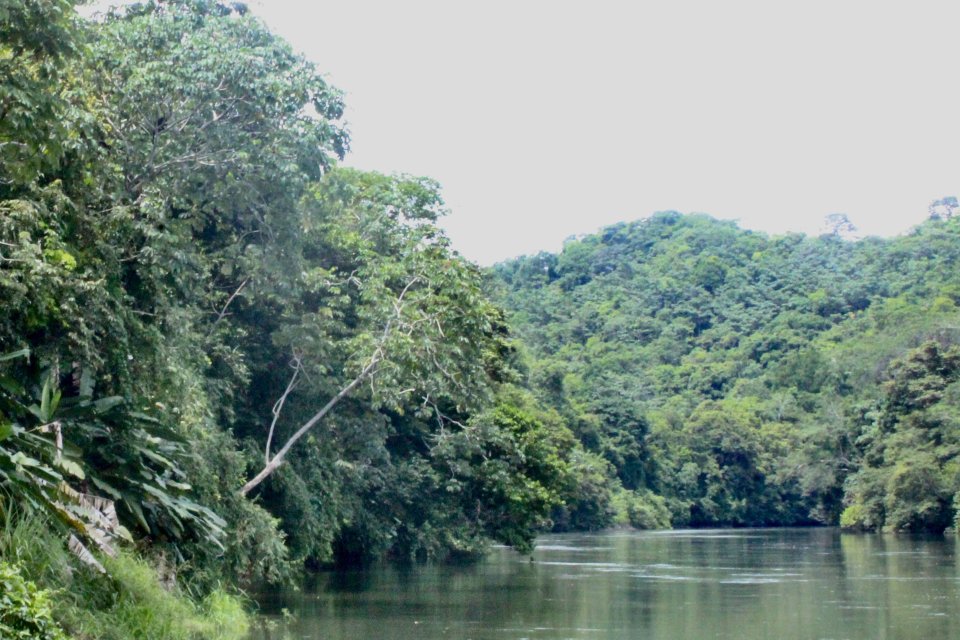
Although we could easily hear the monkeys, the black spot in the tree above, is all we could see.
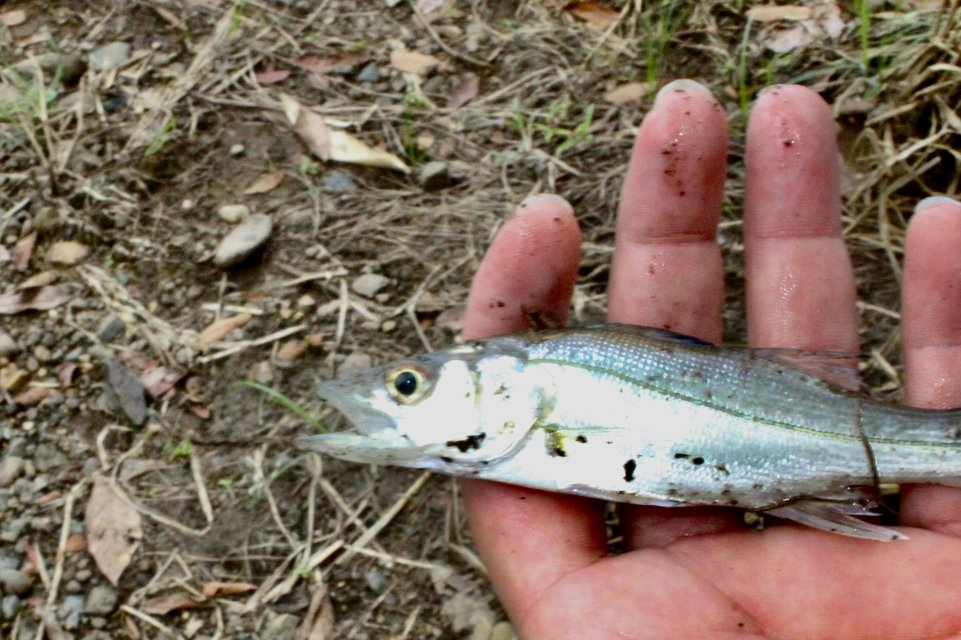
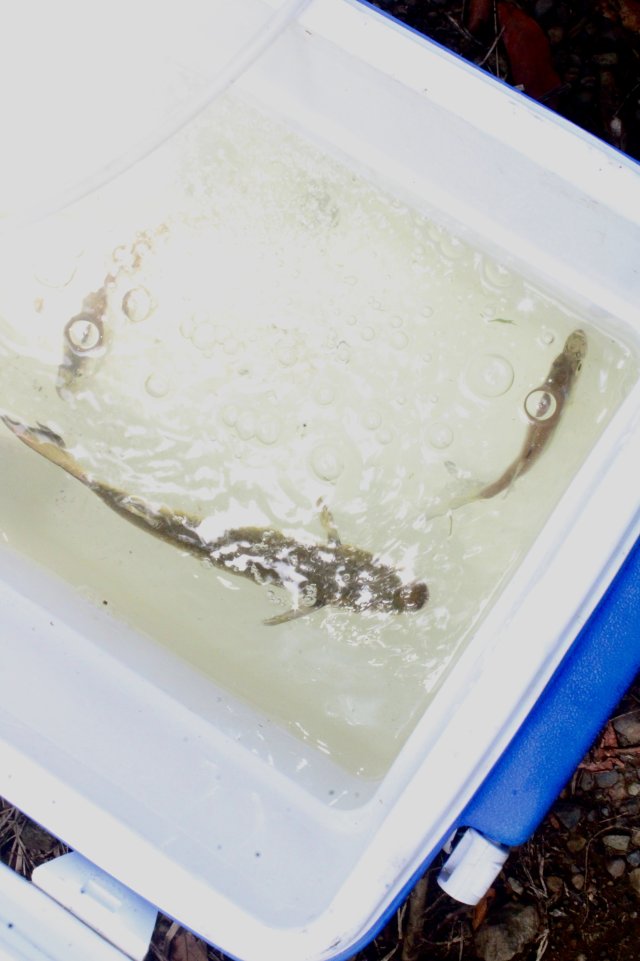
During the next few hours only 3 Robalo (Centropomus sp.) and a foot long Lisa (Mugal cephaus, (mullet)) were caught.
None of these were my idea of great fish for the tank, but Danny said together, they would make a good dinner, for he and his son that night, so took them home, in the aerated cooler, after dropping me at the ferry dock.
As sometimes happens, sometimes you catch what ypour after, sometimes you end up empty handed, except for, the experience.

Just as we started to figure a pathway down, a car pulled up, and the driver said (In Spainish), “ I wouldn’t go down there, there’s a nest of Africanized bees living right under the bridge that have been regularly attacking fishermen.”
When Danny explained we were looking to collect small fish for an aquarium, he said just follows the dirt road 3 kilometers to my finca, it borders the Rio Bayano, and you are welcome to spend time there.

The river was wide and deep there, so we gingerly started casting from near near shore.
In the shallows I could see lots of mollies (Poecilia gilli), and in the forest holler monkeys warned it was their territory.


Although we could easily hear the monkeys, the black spot in the tree above, is all we could see.


During the next few hours only 3 Robalo (Centropomus sp.) and a foot long Lisa (Mugal cephaus, (mullet)) were caught.
None of these were my idea of great fish for the tank, but Danny said together, they would make a good dinner, for he and his son that night, so took them home, in the aerated cooler, after dropping me at the ferry dock.
As sometimes happens, sometimes you catch what ypour after, sometimes you end up empty handed, except for, the experience.



